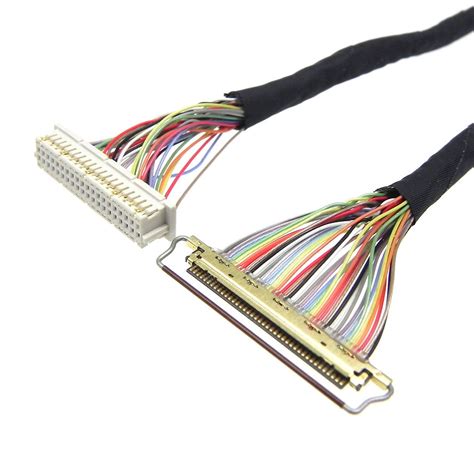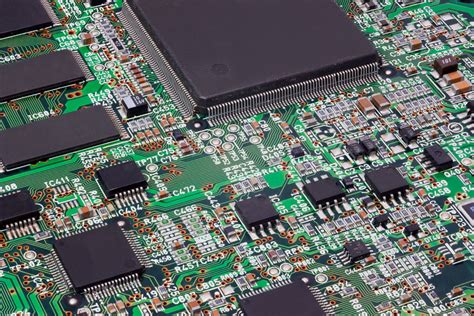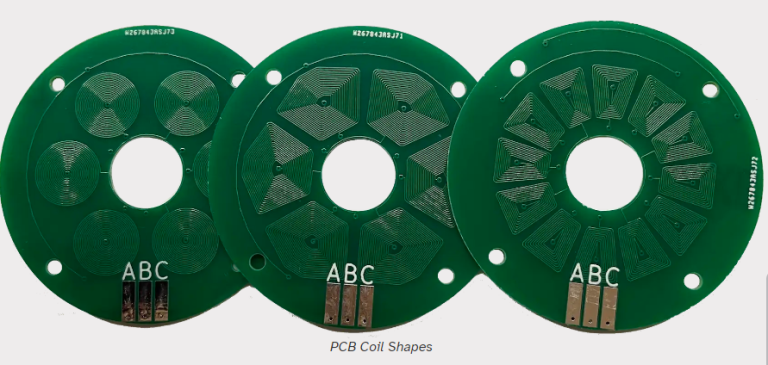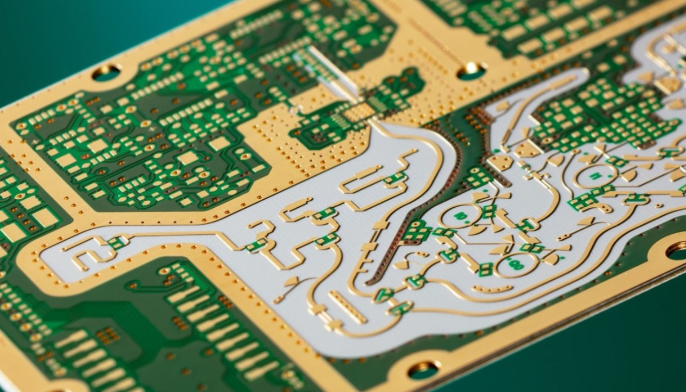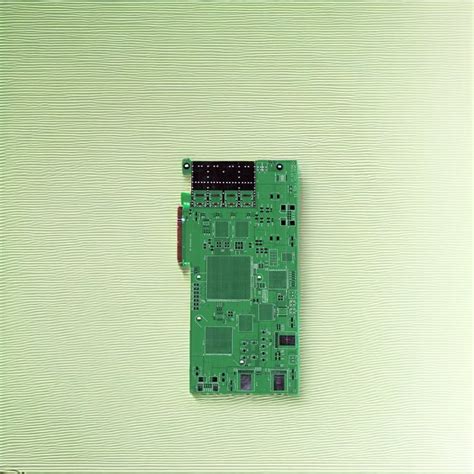Leading PCB Connector Manufacturers for Industrial Applications
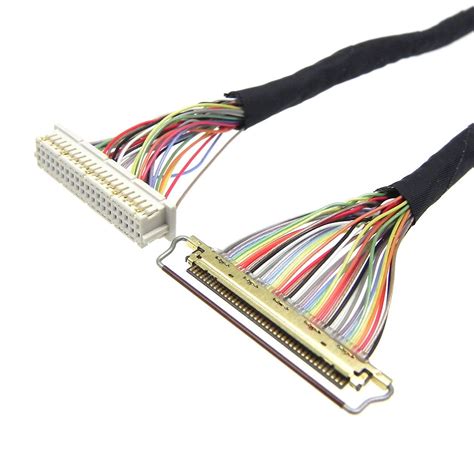
Key Takeaways
When selecting PCB connector manufacturers for industrial systems, understanding core criteria streamlines decision-making Start by verifying compliance with international standards like IEC 60664 and UL certifications, which validate performance in extreme temperatures, vibration, and moisture Reputable PCB manufacturing companies often publish test data showing connector durability under 10,000+ mating cycles—a critical metric for mission-critical applications
"Always cross-reference supplier claims with third-party certification documents to confirm adherence to safety and performance benchmarks."
Cost considerations extend beyond unit pricing PCB manufacturing cost factors include material grades (e.g., high-temperature thermoplastics) and plating thickness (15–30 µin gold for corrosion resistance) For high-voltage environments, opt for connectors with arc-resistant designs and >1,000-hour salt spray test ratings Leading suppliers integrate PCB manufacturing business insights, offering lifecycle cost analyses that account for maintenance intervals and failure rates
Transitioning between supplier evaluations? Prioritize manufacturers offering customization—like board-to-board or wire-to-board configurations—to match your PCB manufacturing requirements Innovations such as self-latching mechanisms or EMI-shielded variants enhance reliability in automated factories
Finally, assess scalability Top-tier PCB manufacturing companies maintain ISO 9001-certified production lines with 1% defect rates, ensuring consistent supply for expanding operations By aligning technical specs with operational demands, you secure connectors that withstand 15+ years in harsh industrial settings while optimizing PCB manufacturing cost efficiency
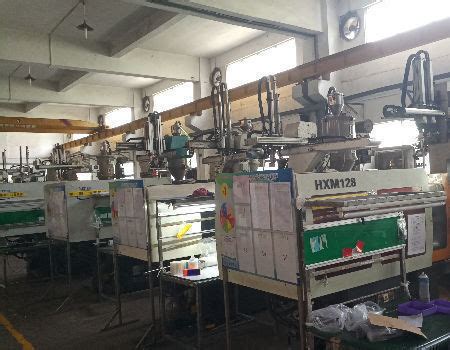
Industrial PCB Connector Manufacturing Standards
When sourcing components for industrial systems, understanding the PCB manufacturing standards that govern connector production is critical Industrial environments demand connectors that withstand extreme temperatures, vibrations, and chemical exposure, requiring adherence to rigorous certifications like IEC 60664 for insulation coordination and UL 1977 for component safety Reputable PCB manufacturing companies prioritize these benchmarks, ensuring their designs meet or exceed the mechanical and electrical stresses common in factories, power plants, and automation systems
A key consideration is how PCB manufacturing cost intersects with quality While budget constraints may tempt buyers to opt for generic alternatives, industrial-grade connectors demand precision in material selection—such as high-temperature thermoplastics or gold-plated contacts—to prevent failures in mission-critical operations For example, suppliers like Andwin PCBA leverage automated testing protocols to validate connector durability, reducing long-term maintenance expenses despite higher upfront investments
The PCB manufacturing business also revolves around traceability and compliance Leading manufacturers document every production phase, from raw material sourcing to final assembly, to guarantee compliance with industry-specific regulations This is particularly vital for applications in hazardous environments, where connectors must prevent arc flashes or short circuits Features like IP67-rated seals or EMI shielding are not optional but foundational to safety protocols
Transitioning to supplier selection, you’ll notice that certifications act as a filter Connectors lacking IEC 61076-2 or MIL-SPEC ratings often fail under sustained industrial loads, risking system downtime By aligning with suppliers that embed these standards into their PCB manufacturing processes, you ensure interoperability with existing infrastructure while future-proofing for evolving tech like IIoT connectivity
Ultimately, the intersection of robust design, material science, and compliance separates industrial connectors from commercial-grade components Prioritizing these standards minimizes risk and aligns with the reliability expected in sectors where failure is not an option
Selecting Industrial-Grade PCB Connector Suppliers
When evaluating PCB connector manufacturers for industrial applications, you need to prioritize suppliers with proven expertise in PCB manufacturing for harsh environments Start by verifying certifications: IEC 60664 compliance for electrical insulation and UL 1977 certification for high-voltage applications are non-negotiable for components exposed to extreme temperatures, vibrations, or moisture Leading PCB manufacturing companies often provide detailed material specifications, such as corrosion-resistant alloys or high-temperature thermoplastics, which directly impact connector longevity
Cost considerations in PCB manufacturing business decisions shouldn’t overshadow quality While lower PCB manufacturing cost might seem appealing, industrial-grade connectors require precision engineering and rigorous testing protocols For example, suppliers should demonstrate IP67-rated sealing for dust/water resistance and 1000+ mating cycles durability Partnering with established PCB manufacturing companies that offer traceable component histories ensures accountability if failures occur in mission-critical systems
Look for suppliers that align with your project’s scalability needs A manufacturer specializing in customizable pin configurations or mixed-signal connector solutions can adapt to evolving industrial automation demands Additionally, assess their supply chain resilience—delays in PCB manufacturing timelines due to material shortages or quality reworks can cripple production schedules
It’s also worth analyzing how manufacturers integrate safety features like arc-resistant designs or EMI shielding into their connectors These elements prevent catastrophic failures in high-voltage industrial equipment while meeting global compliance standards By balancing PCB manufacturing cost with certified reliability, you secure connectors that perform under pressure while minimizing lifecycle expenses
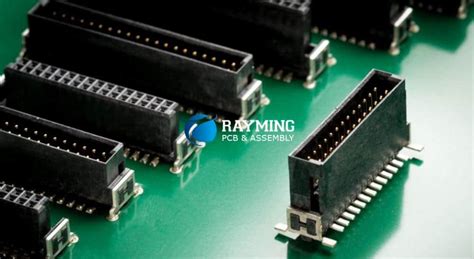
Key Features of IEC-Certified PCB Connectors
When selecting connectors for industrial systems, IEC certification serves as a critical benchmark for reliability PCB manufacturing companies prioritize these standards to ensure components withstand extreme temperatures, vibrations, and electromagnetic interference (EMI) common in harsh environments Unlike generic alternatives, IEC-certified connectors undergo rigorous testing for insulation resistance, dielectric strength, and mechanical endurance, aligning with global safety protocols
A key advantage lies in their material composition Manufacturers use high-temperature thermoplastics and corrosion-resistant alloys, which directly impact PCB manufacturing cost by reducing failure rates in mission-critical applications For example, gold-plated contacts in IEC-compliant connectors minimize signal loss, a feature vital for high-frequency industrial automation systems
| Feature | IEC-Certified Connectors | Non-Certified Alternatives |
|---|---|---|
| Operating Temperature | -40°C to +125°C | -20°C to +85°C |
| Vibration Resistance | 10-2000 Hz, 15G | 5-500 Hz, 5G |
| Contact Durability | 500+ mating cycles | 100-200 mating cycles |
These connectors also integrate polarized housings and color-coded terminals to prevent misalignment during installation—a common pain point in PCB manufacturing business workflows Additionally, their compliance with IEC 60664 ensures adequate creepage and clearance distances, mitigating short-circuit risks in high-voltage setups
For industries like energy or transportation, opting for IEC-certified solutions from reputable PCB manufacturing partners translates to lower long-term maintenance costs and fewer unplanned downtimes Suppliers often provide detailed documentation, including test reports and material traceability records, simplifying compliance audits By prioritizing these features, you ensure seamless integration with existing industrial infrastructure while future-proofing systems against evolving regulatory demands
Ensuring Safety in Harsh Industrial Environments
When operating in demanding industrial settings—from chemical plants to heavy machinery installations—PCB manufacturing must prioritize components that withstand extreme temperatures, vibrations, and corrosive elements Industrial-grade PCB connectors play a critical role here, acting as the backbone for maintaining uninterrupted electrical connectivity Leading PCB manufacturing companies design these connectors with materials like high-temperature thermoplastics and corrosion-resistant alloys, ensuring they meet IEC 60664 standards for insulation coordination and environmental resilience
Selecting the right supplier involves more than just evaluating PCB manufacturing cost; it requires verifying certifications like UL and IEC, which validate a product’s ability to perform under stress For instance, connectors rated for IP67 or higher prevent dust and moisture ingress, a non-negotiable feature in industries like offshore energy or mining Advanced sealing techniques, such as overmolding or compression gaskets, further enhance durability while reducing long-term maintenance expenses—a key consideration for optimizing your PCB manufacturing business ROI
Innovations in signal integrity protection and EMI shielding also contribute to safety High-vibration environments demand connectors with locking mechanisms or solderless press-fit terminals to prevent accidental disconnections Additionally, PCB manufacturing companies now integrate smart monitoring features, such as embedded sensors that detect temperature fluctuations or contact wear, enabling predictive maintenance These advancements align with evolving industry demands, where safety isn’t just about compliance—it’s about building systems that outlast the harshest conditions without compromising performance
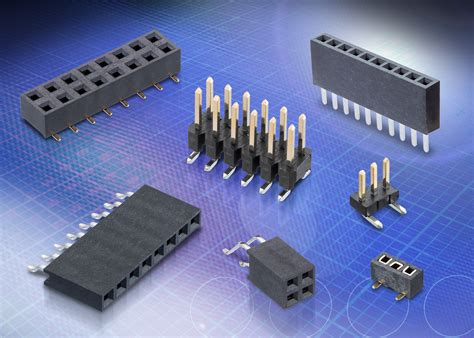
Innovations in High-Performance PCB Connectors
Advancements in PCB manufacturing are redefining what industrial-grade connectors can achieve Modern high-performance designs now integrate materials like liquid crystal polymer (LCP) and polyether ether ketone (PEEK), which offer superior resistance to extreme temperatures, vibrations, and chemical exposure These innovations address a critical challenge in industrial environments: maintaining signal integrity and mechanical stability under continuous operational stress
Leading PCB manufacturing companies are leveraging automated precision assembly to reduce human error, ensuring connectors meet IEC 60664 creepage and clearance standards For example, laser-guided placement systems now achieve micron-level accuracy in contact alignment, directly impacting PCB manufacturing cost by minimizing rework and material waste This shift toward automation also enables scalable production of custom configurations—a growing demand in sectors like robotics and renewable energy
Another breakthrough lies in modular connector systems By adopting tool-less mating mechanisms and corrosion-resistant plating, manufacturers simplify field maintenance while extending product lifespans Such features are particularly valuable for businesses managing PCB manufacturing business operations in humid or dusty settings, where frequent connector replacements can disrupt workflows
When selecting suppliers, prioritize those offering lifecycle testing data that validates performance under thermal cycling (-40°C to +125°C) and prolonged mechanical wear Advanced simulation tools used in PCB manufacturing now predict failure points 30% faster than traditional methods, allowing engineers to refine designs before prototyping This proactive approach not only accelerates time-to-market but aligns with industry 40 requirements for predictive maintenance integration
The convergence of material science and smart manufacturing is setting new benchmarks for durability without compromising power density As industrial IoT expands, these innovations ensure connectors remain the reliable backbone of mission-critical systems—even as operational demands intensify

Reliable PCB Connectors for Mission-Critical Systems
When selecting connectors for systems where failure is not an option, you need components engineered to withstand extreme conditions while maintaining signal integrity and mechanical stability PCB manufacturing companies specializing in industrial applications prioritize designs that exceed baseline durability requirements, often incorporating features like corrosion-resistant coatings, reinforced mating cycles, and vibration-resistant locking mechanisms These connectors aren’t just accessories—they’re mission enablers in sectors like aerospace, energy, and automated manufacturing, where downtime can cost millions
A key consideration is balancing PCB manufacturing cost with lifecycle reliability While cheaper alternatives might reduce upfront expenses, they often lack the rigorous testing—such as thermal shock resistance (-55°C to 125°C) or IP67-rated ingress protection—required for harsh environments Leading manufacturers leverage advanced simulation tools to predict failure points, ensuring connectors meet IEC 60664 insulation standards and UL 1977 certification for industrial use This proactive approach minimizes the risk of field failures, even under continuous mechanical stress or electromagnetic interference
For businesses operating in the PCB manufacturing business, sourcing connectors isn’t just about technical specs—it’s about partnership Top suppliers provide transparent documentation, including material traceability reports and failure-mode analysis, enabling you to audit quality at every production stage Features like gold-plated contacts (076μm minimum thickness) or high-temperature thermoplastic housings aren’t optional; they’re non-negotiable for maintaining conductivity and structural integrity in fluctuating operational conditions
Beyond materials, innovative PCB manufacturing processes now integrate smart diagnostics, such as embedded sensors that monitor contact resistance in real time This shift toward predictive maintenance aligns with Industry 40 requirements, allowing you to address potential issues before they escalate Whether you’re deploying robotics in assembly lines or offshore drilling systems, connectors built for mission-critical applications ensure seamless performance when reliability matters most
Comparing Top PCB Manufacturers for Durability
When evaluating PCB manufacturing companies for industrial applications, durability becomes a non-negotiable criterion Industrial environments expose connectors to extreme temperatures, vibration, and contaminants, demanding components engineered to withstand prolonged stress Leading manufacturers differentiate themselves by utilizing materials like high-temperature thermoplastics and corrosion-resistant alloys, ensuring connectors maintain optimal performance even in harsh conditions For instance, suppliers adhering to IEC 60664 compliance often integrate reinforced contact designs and advanced sealing techniques, directly addressing challenges like moisture ingress or particulate buildup
Cost considerations in PCB manufacturing cost analyses must balance upfront expenses with lifecycle durability While some vendors offer lower initial pricing, their connectors may require frequent replacements in demanding settings, ultimately inflating long-term operational costs Reputable PCB manufacturing businesses prioritize rigorous testing protocols—such as 50,000+ mating cycles or salt spray resistance—to validate endurance claims Third-party certifications (e.g., UL or IP67 ratings) further validate these benchmarks, providing tangible proof of reliability
Transitioning between suppliers? Focus on manufacturers offering customizable solutions tailored to specific environmental stressors For example, connectors designed for heavy machinery might emphasize vibration dampening, while those for chemical plants prioritize chemical resistance By aligning PCB manufacturing capabilities with application-specific demands, you ensure connectors not only survive but thrive in mission-critical systems This approach future-proofs your infrastructure while minimizing downtime—a critical factor when comparing durability-focused partners
Future Trends in Industrial PCB Connector Tech
As industrial systems grow more complex, PCB manufacturing companies are pushing the boundaries of connector technology to meet evolving demands One key trend is the integration of smart connectivity features, such as embedded sensors that monitor temperature, vibration, and electrical load in real time These advancements not only enhance performance but also align with the need for predictive maintenance in Industry 40 environments, reducing unplanned downtime in mission-critical operations
Another shift involves material innovation To address rising PCB manufacturing costs, suppliers are adopting high-performance polymers and composite alloys that withstand extreme temperatures (-55°C to 200°C) while maintaining signal integrity For example, liquid crystal polymer (LCP) housings are gaining traction for their resistance to chemical corrosion and mechanical stress, making them ideal for harsh industrial settings
Modular design is also reshaping the PCB manufacturing business Connectors with interchangeable contact configurations allow engineers to customize pin layouts without redesigning entire assemblies, accelerating prototyping cycles This flexibility is particularly valuable for applications like robotics and automated production lines, where rapid adaptation to new tasks is essential
Automation is further streamlining production processes Advanced PCB manufacturing facilities now leverage AI-driven quality control systems to inspect connector plating thickness and contact alignment with micron-level precision This reduces defects by up to 40% compared to manual inspections, ensuring compliance with IEC 60664 insulation standards even in high-voltage scenarios
Finally, sustainability is becoming a core focus Manufacturers are optimizing material usage through miniaturized designs and recycling programs for precious metals in connector contacts These efforts not only lower environmental impact but also align with cost-efficiency goals, creating a competitive edge for forward-thinking suppliers
As you evaluate future-ready solutions, prioritize partners who balance innovation with proven reliability—especially those investing in R&D to address the dual challenges of performance scalability and PCB manufacturing cost control
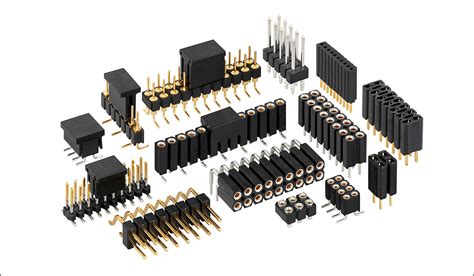
IEC 60664 Compliance in Connector Design
When selecting PCB connector manufacturers for industrial systems, verifying IEC 60664 compliance becomes non-negotiable This international standard governs insulation coordination—a critical factor in preventing electrical failures caused by overvoltages, pollution, or humidity Industrial-grade PCB manufacturing processes must account for these requirements early in the design phase, as retrofitting compliance into existing designs often escalates PCB manufacturing costs and delays production timelines
Leading PCB manufacturing companies integrate creepage and clearance calculations directly into their connector designs For example, connectors rated for 300V applications in dusty environments require at least 55mm of creepage distance between conductive elements—a specification that demands precision in material selection and mold tooling By prioritizing these metrics, manufacturers ensure connectors withstand partial discharges and tracking phenomena, two common failure modes in harsh settings like chemical plants or outdoor energy grids
The economic implications of IEC compliance extend beyond safety While adhering to these standards may increase initial PCB manufacturing business expenses by 12–18%, it reduces long-term risks like warranty claims or system downtime Reputable suppliers often provide certification documentation and test reports to validate compliance, enabling engineers to streamline safety audits
As industrial applications push toward higher voltage and miniaturization, balancing IEC 60664 requirements with PCB manufacturing cost constraints becomes a key differentiator Forward-thinking manufacturers now employ automated simulation tools to optimize insulation layouts without compromising connector density—a strategy that aligns with evolving Industry 40 demands while maintaining compliance rigor
UL-Certified Solutions for Industrial Applications
When selecting components for industrial systems, UL-certified solutions offer a critical layer of assurance for reliability and safety These certifications validate that PCB connector manufacturers adhere to rigorous testing protocols, including flame resistance, mechanical durability, and electrical performance under extreme conditions For businesses managing pcb manufacturing costs, opting for UL-certified components may initially seem like a premium investment, but it significantly reduces long-term risks associated with equipment failure or non-compliance penalties
Leading pcb manufacturing companies prioritize UL standards because they align with global safety benchmarks, particularly in sectors like automation, energy, and heavy machinery Industrial-grade connectors must withstand vibrations, temperature fluctuations, and exposure to chemicals—factors that standard consumer-grade parts often fail to address By integrating UL-certified connectors into your designs, you ensure compatibility with pcb manufacturing business workflows that demand traceability and documentation for regulatory audits
The certification process itself involves third-party verification of materials, design integrity, and performance under stress This is especially vital when sourcing from pcb manufacturing suppliers operating in regions with varying quality control practices UL marks not only simplify compliance with IEC 60664 standards but also serve as a recognizable indicator of trust for engineers specifying parts for mission-critical systems
Innovations in connector technology, such as corrosion-resistant coatings or modular designs, further enhance the value proposition of UL-certified options While pcb manufacturing cost considerations remain important, balancing affordability with certification-backed reliability ensures your projects meet both operational and safety objectives As industrial environments grow more complex, partnering with manufacturers that embed UL compliance into their R&D processes becomes a strategic advantage—one that safeguards both equipment longevity and workplace safety
Conclusion
When selecting partners for PCB manufacturing in industrial applications, the choice ultimately impacts your system’s reliability and operational efficiency Leading PCB manufacturing companies distinguish themselves by balancing durability, compliance with IEC 60664 standards, and adaptability to evolving industrial demands While PCB manufacturing cost remains a critical factor, prioritizing suppliers with UL-certified solutions ensures long-term value by minimizing downtime in harsh environments
For businesses operating in mission-critical systems, the focus should extend beyond initial pricing to evaluate how PCB manufacturing business practices align with your safety and performance requirements Innovations like corrosion-resistant materials and modular connector designs are reshaping industrial applications, enabling manufacturers to deliver solutions that withstand extreme temperatures and mechanical stress
As you assess options, consider how manufacturers integrate smart monitoring technologies or predictive maintenance features into their designs—advancements that are becoming benchmarks in modern PCB manufacturing By partnering with suppliers who prioritize IEC 60664 compliance and UL certifications, you future-proof your operations against emerging challenges while maintaining compliance with global industrial standards
The evolution of PCB manufacturing underscores the importance of collaboration between engineers and suppliers Whether optimizing for PCB manufacturing cost or scalability, ensure your chosen partner demonstrates expertise in both high-performance materials and customization capabilities This strategic alignment guarantees that your industrial systems remain resilient, efficient, and ready to adapt to tomorrow’s technological shifts
FAQs
What should you look for when choosing industrial PCB connector manufacturers?
When selecting suppliers for industrial applications, prioritize IEC 60664 and UL certifications to ensure compliance with safety standards Reputable PCB manufacturing companies often provide detailed documentation on material specifications and testing protocols, which helps verify component reliability in harsh environments
How does PCB manufacturing cost impact connector quality?
Higher PCB manufacturing costs typically reflect advanced materials and precision engineering, such as gold-plated contacts or corrosion-resistant housings While budget constraints matter, compromising on quality can lead to premature failures in mission-critical systems Always request cost breakdowns to assess value versus risk
Are there specialized PCB manufacturing businesses for industrial needs?
Yes, certain PCB manufacturing businesses focus exclusively on industrial-grade solutions These providers often offer custom designs, extended temperature ranges (-40°C to +125°C), and vibration-resistant connectors tailored for machinery, automation, or energy systems
Why is IEC certification critical for industrial PCB connectors?
IEC 60664-compliant connectors undergo rigorous testing for insulation, creepage, and clearance distances This certification ensures components withstand electrical stresses and environmental factors like humidity or contaminants, reducing downtime in demanding applications
Can standard PCB connectors be used in industrial settings?
Consumer-grade connectors often lack the durability needed for industrial use Opt for PCB manufacturing partners that specialize in ruggedized designs, including sealed connectors for dust/water resistance and high-cycle mating durability (10,000+ insertions)
Explore Custom Solutions for Your Project
For tailored industrial connector designs that align with your technical and budgetary requirements, please click here to consult with engineers specializing in high-reliability PCB manufacturing

